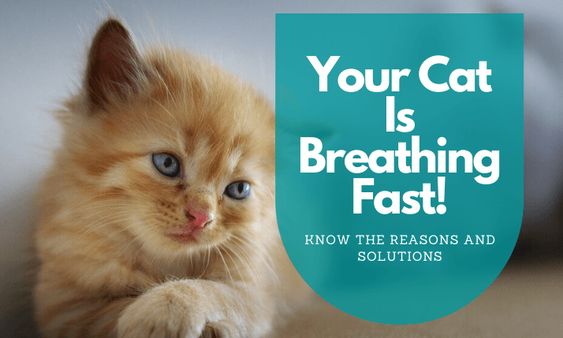Cats, with their mysterious and sometimes elusive nature, can leave pet owners puzzled when they exhibit unusual behaviors. One concerning behavior that may cause alarm is fast breathing. While it’s normal for cats to breathe slightly faster than humans, especially during periods of excitement or exertion, persistent rapid breathing could indicate an underlying health issue that requires attention.
Causes of Fast Breathing in Cats
Respiratory Infections
Upper respiratory infections are common in cats, especially those living in multi-cat environments such as shelters or catteries. These infections, often caused by viruses or bacteria, can lead to symptoms like sneezing, nasal discharge, and fast breathing. Additionally, feline asthma, a condition similar to human asthma, can cause episodes of rapid breathing and wheezing in affected cats.
Heart Conditions
Heartworm disease, although more commonly associated with dogs, can also affect cats and lead to respiratory symptoms such as fast breathing. Cardiomyopathy, a disease of the heart muscle, can cause fluid buildup in the lungs, leading to difficulty breathing and rapid respiration.
Heat Stroke
Cats are susceptible to heat stroke, especially in hot and humid environments. Fast breathing, along with other signs like panting, drooling, and lethargy, can indicate that a cat is overheating and needs immediate cooling and veterinary care.
Pain or Stress
Injury or trauma, such as being hit by a car or falling from a height, can cause pain and distress, leading to rapid breathing in cats. Similarly, anxiety or fear-inducing situations, such as loud noises or changes in the environment, can trigger fast breathing as a stress response in sensitive cats.
Symptoms to Watch For
When assessing whether your cat’s breathing is abnormally fast, it’s essential to observe other accompanying symptoms. Rapid breathing, shallow breathing, open-mouth breathing, wheezing, or coughing are all signs that warrant closer attention and possible veterinary evaluation.
When to Seek Veterinary Care
If you notice that your cat is breathing rapidly and the behavior persists for an extended period, it’s crucial to seek veterinary care promptly. Monitoring the frequency and duration of fast breathing can help your veterinarian make an accurate diagnosis and recommend appropriate treatment.
Diagnostic Procedures
Your veterinarian may perform a series of diagnostic tests to determine the underlying cause of your cat’s fast breathing. These may include a physical examination, x-rays or ultrasounds of the chest, and blood tests to assess organ function and check for infections.
Treatment Options
Treatment for fast breathing in cats depends on the underlying cause. Antibiotics may be prescribed for respiratory infections, while bronchodilators can help alleviate symptoms of feline asthma. Cats with heart conditions may require medications to manage their condition and improve breathing, while stress management techniques can help reduce anxiety-induced rapid breathing.
Preventive Measures
Taking steps to prevent fast breathing in cats involves providing a safe and stress-free environment, keeping cats indoors to reduce the risk of exposure to infectious agents, and scheduling regular veterinary check-ups to monitor overall health and catch any potential issues early.
Conclusion
Fast breathing in cats can be a worrisome symptom for pet owners, but it’s essential to remain calm and take proactive steps to address the underlying cause. By understanding the potential causes, recognizing accompanying symptoms, and seeking prompt veterinary care, you can ensure your feline companion receives the necessary treatment and support for optimal health and well-being.







Leave a Comment